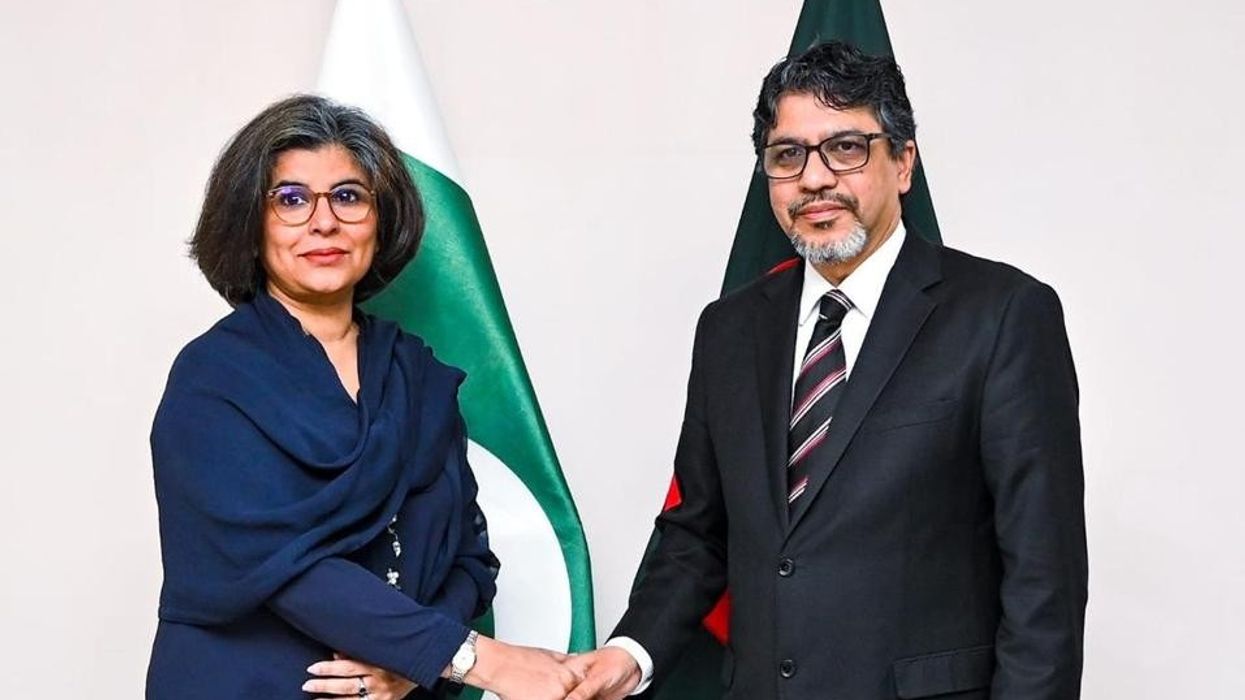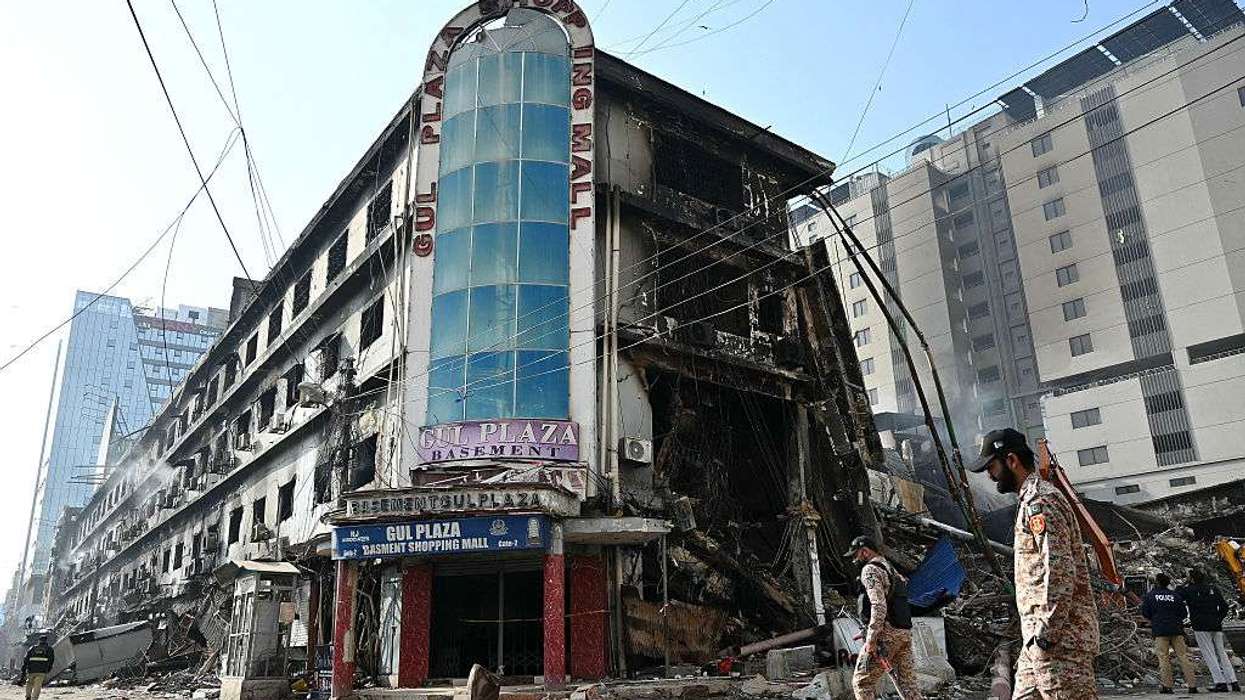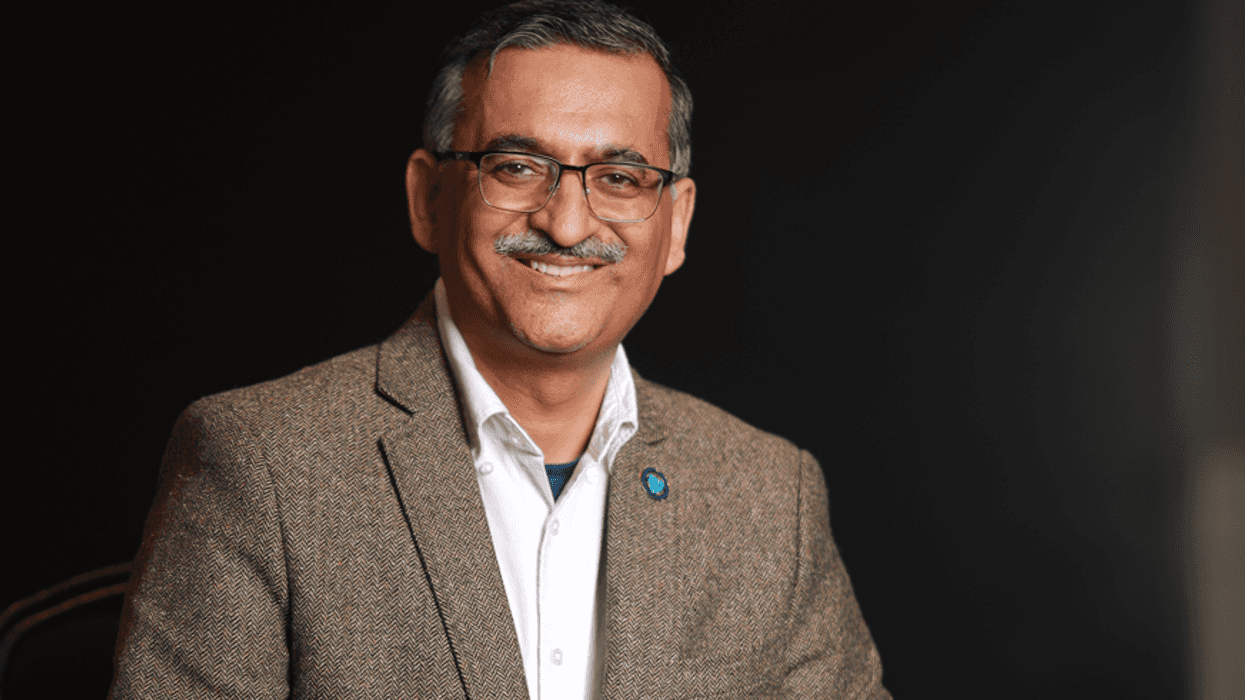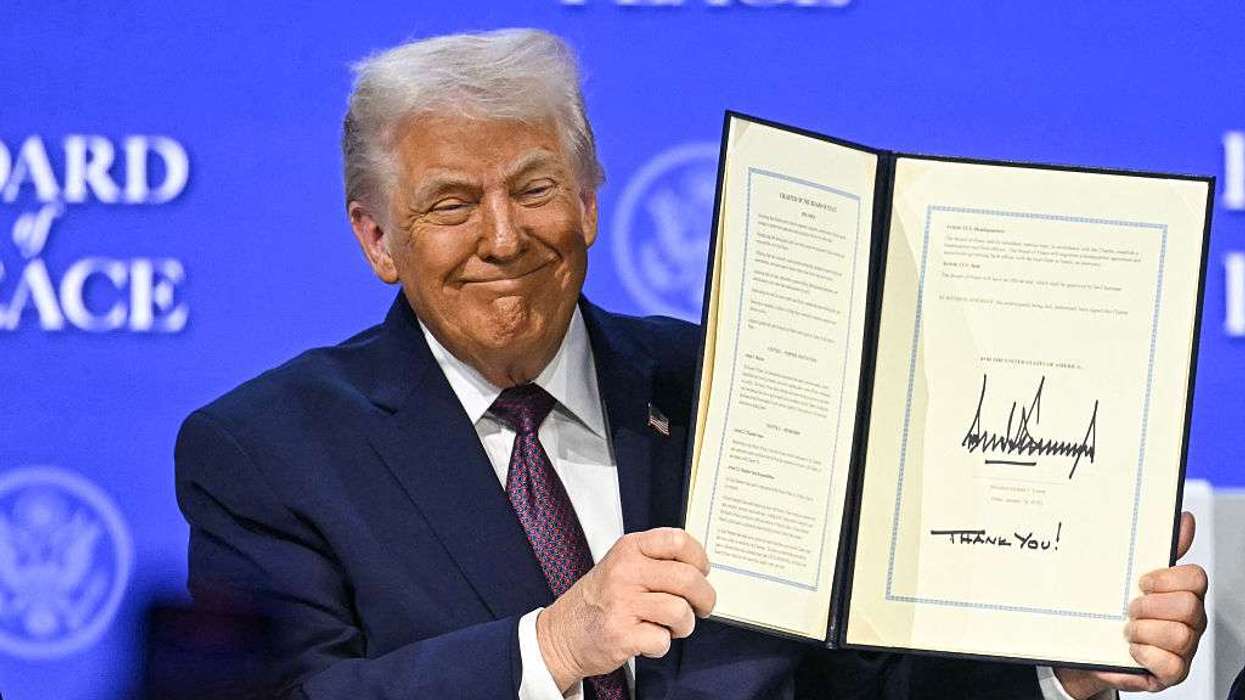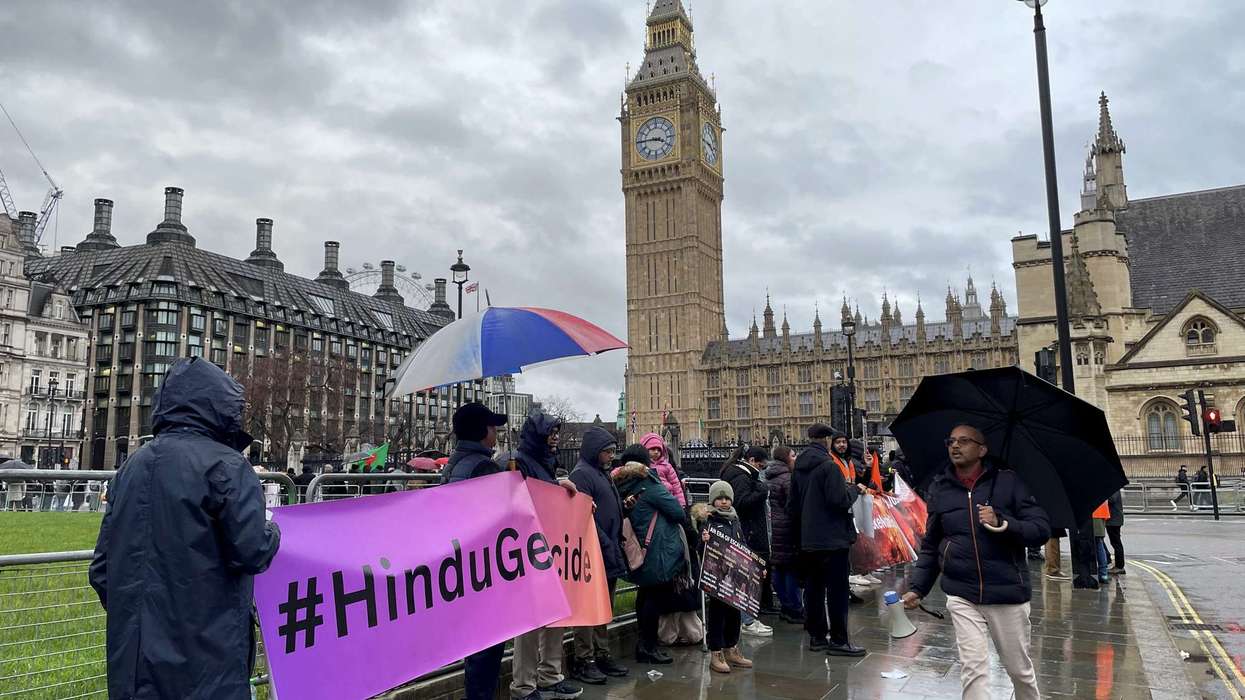BANGLADESH on Thursday raised several longstanding concerns with Pakistan, including a public apology over the 1971 atrocities, during the first foreign secretary-level talks between the two countries in 15 years.
Bangladesh also asked Pakistan to pay USD 4.3 billion as its share of undivided assets from when East Pakistan became independent Bangladesh in 1971.
“We have raised the historically unresolved issues with Pakistan,” said Bangladesh foreign secretary M Jashim Uddin after holding the Foreign Office Consultation (FOC) with his Pakistani counterpart Amna Baloch at state guest house Padma in Dhaka.
The meeting took place days ahead of Pakistani deputy prime minister and foreign minister Ishaq Dar's scheduled visit to Dhaka on April 27 and 28.
Jashim Uddin said the issues raised included “the repatriation of stranded Pakistanis, equitable distribution of undivided assets, transfer of foreign aid funds sent for the victims of the 1970 cyclone, and a formal public apology for the genocide committed by the then Pakistani military in 1971.”
“We said this is the right time to settle the historical unsettled issues,” he said. “These issues needed to be resolved to have a solid foundation of our relations for mutual benefits and interests.”
Asked how Pakistan responded, Jashim Uddin said they wanted to “remain engaged” with a positive outlook to continue discussing the unresolved matters.
Pakistan’s Foreign Office said in a statement that both sides had a “constructive and forward-looking engagement in a cordial environment,” where they discussed the full range of bilateral ties, including political, economic, and trade relations.
It said both countries also talked about cooperation in agriculture, environment and education, cultural exchanges, and defence ties, and explored new areas of collaboration.
Later, Amna Baloch met chief adviser Muhammad Yunus and foreign affairs adviser Touhid Hossain separately.
Yunus called for stronger ties with Pakistan to improve cooperation and develop trade and business opportunities.
“There are certain hurdles. We have to find ways to overcome those and move forward,” he told Baloch.
Acknowledging past issues, Baloch said Bangladesh and Pakistan must work together to “harness the potentials between the two countries.”
“We kept missing each other for a long time as our relationship was frozen. We have to overcome the barriers,” Yunus said, recalling his meetings with Pakistan’s prime minister Shehbaz Sharif on the sidelines of the UN General Assembly in New York and the D-8 Summit in Cairo last year.
Baloch also met Foreign Affairs Adviser Md. Touhid Hossain to discuss regional matters, including the revival of SAARC and trade and economic ties, according to Pakistan’s Foreign Office.
The foreign secretary-level dialogue comes amid warming ties between the two countries after prime minister Sheikh Hasina was ousted in August last year.
The interim government led by Yunus appears to be downplaying the role of Hasina's father, Sheikh Mujibur Rahman, in Bangladesh’s 1971 liberation. During that war, over 90,000 Pakistani soldiers were taken as prisoners by the Indian Army.
Jashim Uddin said Bangladesh also asked Pakistan to pay the unpaid USD 200 million in foreign aid that was sent for victims of the 1970 cyclone.
When asked whether inflation and currency devaluation had been considered, he said the matter was raised at the FOC and further details would be discussed in future talks.
Jashim Uddin also said Bangladesh emphasised stronger economic and trade ties with Pakistan.
“We stressed the need for enhanced market access for Bangladeshi products in Pakistan, simplifying trade procedures, removing tariff barriers, and boosting Pakistani investment in Bangladesh,” he said.
The two countries also discussed cooperation in agriculture, fisheries and livestock, including transfer of technology, improved breeds, and sharing of experience to raise productivity.
They expressed hope that direct flights between Bangladesh and Pakistan would start soon.
Jashim Uddin said Dhaka reiterated the importance of regional cooperation under the SAARC framework and called for its revival to promote stability, connectivity, and development in South Asia.
Asked if Dhaka was leaning towards Pakistan, as it was earlier seen as close to New Delhi, he said Bangladesh wanted ties with Pakistan based on “mutual respect” and “mutual benefit,” and it was not about favouring any one country.
“We believe comprehensive discussions held today on bilateral, regional, and global issues will help move our cooperation forward and contribute to resolving priority concerns through mutual goodwill and consensus,” he said.
(With inputs from PTI)
